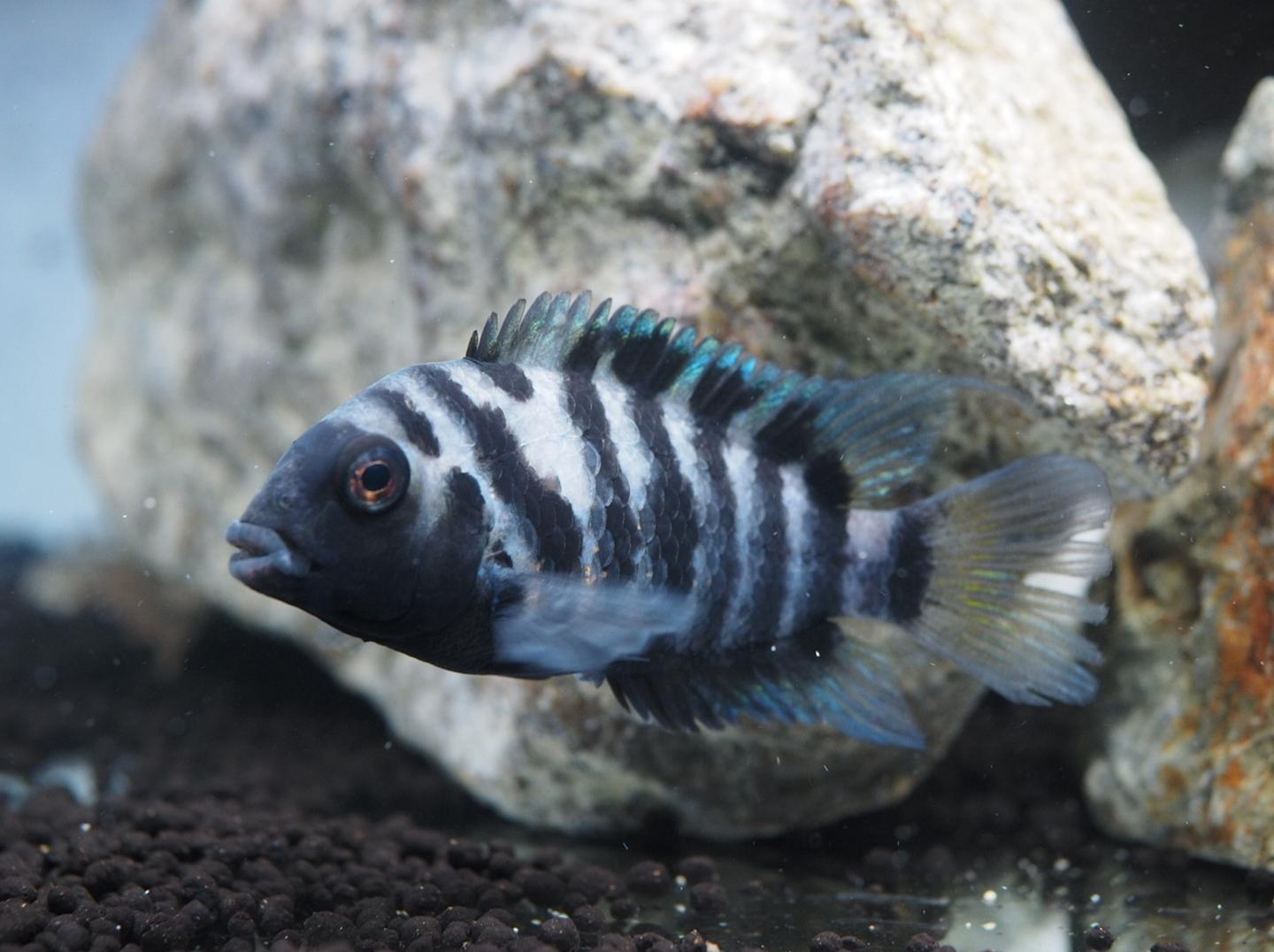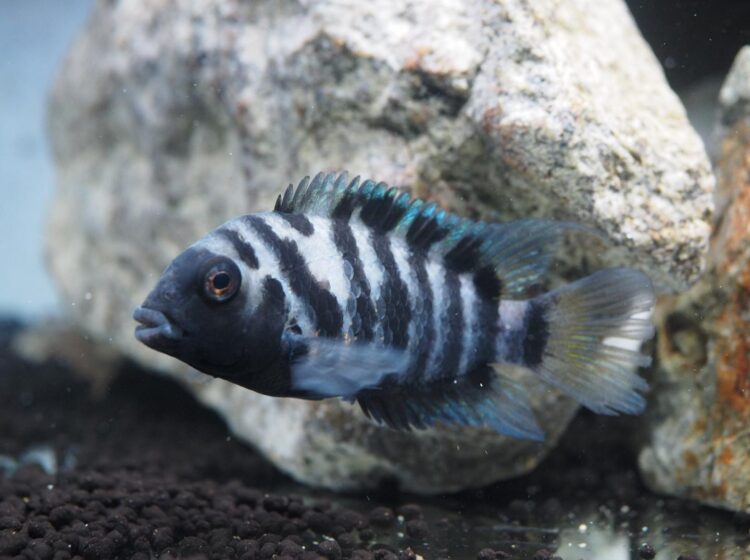Osaka City University shows experimental evidence of an altruistic nature in small convict cichlid fish

Credit: Shun Satoh, Masanori Kohda
OSAKA, Japan. If you were given the option to eat a delicious meal by yourself, or share that meal with your loved ones, you would need as very good excuse ready if you chose the former. Turns out, fish share a similar inclination to look after each other.
For the first time ever, a research group led by researcher Shun Satoh and Masanori Kohda, professor of the Graduate School of Science, Osaka City University, have shown these altruistic tendencies in fish through a series of prosocial choice tasks (PCT) where they gave male convict cichlid fish two choices: the antisocial option of receiving food for themselves alone and the prosocial option of receiving food for themselves and their partner.
“As a result, it can be said that the convict cichlid fish properly distinguish between paired females, unknown females, and rival males, and change their choices according to the situation”, states Dr. Satoh.
However, what exactly happened?
An experimental male fish was placed in a tank, and a fish was presented to the male fish in another tank. When a partner with whom the male fish had experience in raising children was in the presentation tank, the male fish actively made a prosocial choice and both fish received food. On the other hand, when there was no one in the presentation tank, the male fish preferred neither the prosocial nor antisocial option. To understand how the social context affected the fish’s prosocial nature, the team changed the partners to rival males or females the experimental male fish had never met before. Results showed the male fish actively choose the antisocial option of not feeding the rival male, while choosing the prosocial option of feeding the unknown female as if it was their own breeding partner. In the latter experiment, the team also presented the original paired female near the experimental tank holding the male fish. In the absence of the paired female, the male fish made the prosocial choice which provided food for the unknown female, but in the presence of the paired female, they made the antisocial choice.
“These PCT results mirror those from similar experiments with primates”, states Dr. Satoh. “However, this is the first time that caring and misbehaving behavior has been observed in fish. No one had ever expected such delicate and exquisite social behavior from such a small fish.”
Yet, there is still much work to do. “Through more rigorous behavioral experiments, we hope to clarify whether these fish really have psychosociality and the motivation to produce it and also how the mind of this type of fish evolved to produce it” states Prof. Kohda.
There are hypotheses floating around as to the origin of this desire to care. Could it be a link that connects us past our primate ancestors, ultimately back to fish? Let us wait and see what else Prof. Kohda and his team find out.
###
We are Osaka City University – the oldest research university in Osaka. With 9 undergraduate faculties and 11 graduate schools all dedicated to making urban life better, energy cleaner, and people healthier and happier, we have won numerous awards and have produced 2 Nobel laureates. For more information, please visit our website at https:/
Media Contact
James Gracey
[email protected]
Related Journal Article
http://dx.





